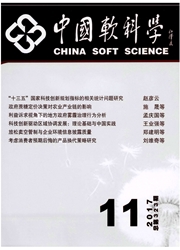

 中文摘要:
中文摘要:
通过构建一个大股东控制条件下的企业投资行为决策的模型,针对所有权集中条件下的企业不同控制权配置形态与非效率投资行为的关系进行分析和研究,并利用1999-2006年间我国上市公司的样本数据进行了实证检验。结果表明:在大股东绝对控股条件下,企业的过度投资行为会随着大股东持股比例的增加而不断缓解,与所有权比例呈负相关关系,而投资不足则与所有权比例呈现出正相关关系;在多个大股东共同控制条件下,企业的非效率投资行为会根据多个大股东之间的监督或共谋而呈现出不同:当多个大股东互相监督时,企业的过度投资行为将得到缓解,而投资不足加强;而当多个大股东互相共谋,形成股东联盟时,企业过度投资行为将会加强,而投资不足缓解。
 英文摘要:
英文摘要:
By modelling the enterprise investment behaviors in the ownership structure of large shareholder controlling, we stuoy the relationship between the allocation of control rights and the inefficient investment behaviors under the condition of ownership concentration. And an empirical study by the sample data of the listed companies during 1999 - 2006 are used to verify our conclusion. We show that in an ownership structure of one large shareholder controlling, the over - investment behavior is alleviated with the increasing of the proportion of the large shareholder, i.e. the over - investment behavior is anti - correlated with the share proportion; while the investment - deficiency behavior is correlated with the proportion of the large shareholder. In the case of multiple shareholders controlling, the inefficient investment behaviors depend on whether the relationship of the shareholders is monitoring or cooperating : the over - investment is alleviated and the investment - deficiency is accentuated if shareholders monitoring each other, while the over - investment is accentuated and the investment - deficiency is alleviated if shareholders cooperate with each other.
 同期刊论文项目
同期刊论文项目
 同项目期刊论文
同项目期刊论文
 期刊信息
期刊信息
